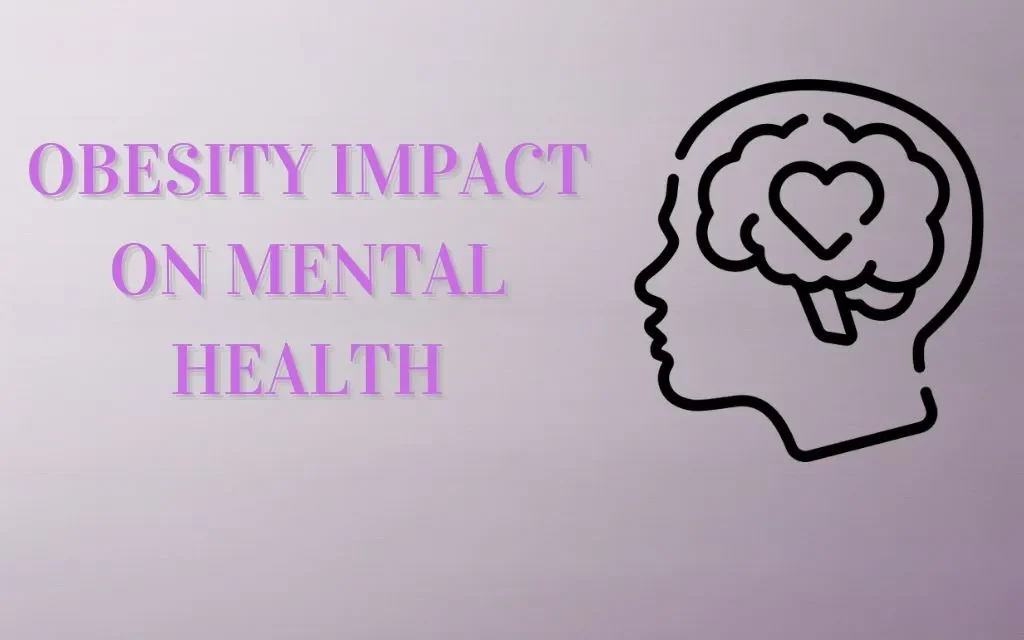Obesity is a growing epidemic worldwide, with nearly 40% of adults and 19% of children in the United States classified as obese. The physical health consequences of obesity are well-documented, including an increased risk of heart disease, diabetes, and certain types of cancers. However, the obesity impact on mental health is often overlooked despite growing evidence suggesting a link between the two.
Obesity not only affects physical health but also has a significant impact on mental health. Individuals who are obese are at higher risk of developing depression, anxiety, low self-esteem, eating disorders, and cognitive impairment. It is essential for healthcare providers to address both the physical and mental health aspects of obesity in order to provide holistic care for their patients. Additionally, reducing weight stigma and promoting body positivity can help individuals who are obese improve their mental well-being and overall quality of life.
Table of Contents
Obesity Impact on Mental Health
1. Depression: Obesity has been linked to an increased risk of depression. A study published in the Archives of General Psychiatry found that obese individuals were 55% more likely to develop depression over time compared to those of normal weight. The stigma associated with obesity, as well as the physical limitations it can impose, may contribute to feelings of sadness and hopelessness.
2. Anxiety: Obesity is also associated with higher levels of anxiety disorders. A study published in the Journal of Clinical Psychiatry found that obese individuals were nearly 50% more likely to have an anxiety disorder compared to individuals of normal weight. The social stigma surrounding obesity, as well as concerns about health and body image, can contribute to feelings of anxiousness and worry.
3. Low self-esteem and body image issues: Individuals who are obese often struggle with low self-esteem and poor body image. The media and societal norms often portray thinness as the ideal body type, leading those who are overweight or obese to feel inadequate or unattractive. This can lead to a vicious cycle of negative thoughts and feelings, further exacerbating mental health issues.
4. Eating disorders: While not all individuals who are obese will develop an eating disorder, there is a higher prevalence of disordered eating behaviors among this population. Binge eating disorder, in particular, is more common among those who are obese. This can contribute to feelings of guilt and shame and further exacerbate weight gain, leading to a cycle of self-destructive behaviors.
5. Cognitive impairment: Obesity has been linked to cognitive impairment, including difficulties with memory, learning, and decision-making. A study published in the journal Neurology found that individuals who were obese in midlife had an increased risk of developing dementia later in life. The exact mechanisms behind this relationship are still not fully understood, but inflammation, insulin resistance, and vascular changes associated with obesity may play a role.
The Importance of Regular Exercise
Regular exercise is essential for maintaining good physical and mental health. Engaging in physical activity on a consistent basis can help individuals to improve their cardiovascular health, increase their muscle strength, and enhance their flexibility and balance. Exercise also plays a crucial role in managing weight and reducing the risk of chronic diseases such as diabetes, heart disease and certain types of cancer.
In addition to its physical benefits, regular exercise has been shown to have a positive impact on mental health by reducing symptoms of anxiety and depression, improving mood, and promoting better sleep. Overall, incorporating regular exercise into one’s daily routine is a key component of leading a healthy and fulfilling life.
The Benefits of Eating a Balanced Diet
Eating a balanced diet is crucial for maintaining overall health and well-being. A balanced diet consists of a variety of foods from all the major food groups, including fruits, vegetables, whole grains, lean proteins, and healthy fats. By ensuring that they are consuming a diverse range of nutrients, individuals can support their immune system, promote healthy digestion, and maintain a healthy weight.
Additionally, a balanced diet provides the body with the energy it needs to fuel daily activities and exercise. Consuming a variety of nutrient-rich foods can also help to reduce the risk of chronic diseases such as diabetes, heart disease, and obesity. By making conscious choices about what they eat, individuals can improve their overall health and quality of life.
How Weight Loss Procedures Help With Your Mental Health
Bariatric surgery has been increasingly recognized as an effective treatment that enhances obesity-related mental health conditions. There is a strong association between obesity and mental disorders, with people living with obesity at a higher risk of developing issues such as symptoms of depression.
In fact, research has demonstrated a clear relationship between obesity and mental health, highlighting the need for targeted interventions in this population. Public health efforts to address the burden of obesity must also consider the mental health disorders that often accompany it, as these can significantly impact health-related quality of life.
Individuals with obesity are not only at an increased risk of physical health problems but also mental health issues. The relationship between obesity and mental illness is complex, with both factors influencing each other in a bidirectional manner.
For example, depression can lead to overweight or obesity through changes in behavior, while the stigma and discrimination associated with being overweight can exacerbate symptoms of mental disorders. Therefore, addressing both the physical and mental aspects of obesity is crucial for overall health and well-being.
It’s important to clarify that bariatric surgery doesn’t directly “cure” mental health issues. However, research suggests it can have a positive impact on mental well-being in several ways:
1. Improved Physical Health and Reduced Stigma:
- Weight loss after surgery can significantly improve physical health conditions like sleep apnea, joint pain, and type 2 diabetes. This improved physical state can lead to a better mood and overall sense of well-being.
- Weight loss can also reduce the stigma associated with obesity, which can be a major source of stress and depression.
2. Hormonal Changes:
- Bariatric surgery, depending on the procedure, can lead to hormonal changes that may contribute to a more positive mood. For example, some procedures can decrease the production of ghrelin, the “hunger hormone,” and increase levels of peptide YY (PYY), a hormone that promotes feelings of fullness.
3. Breaking the Cycle of Emotional Eating:
- The reduced stomach capacity after surgery can make emotional overeating less physically satisfying. This discomfort can create a negative association with overeating, potentially helping to break the cycle of emotional eating for some individuals.
4. Increased Confidence and Self-Esteem:
- Weight loss can significantly boost self-confidence and improve body image. This can lead to a more positive outlook on life and a reduction in symptoms of depression and anxiety.
5. Motivation for Lifestyle Changes:
- The success of bariatric surgery can motivate individuals to adopt other healthy lifestyle changes, such as regular exercise and therapy, which can further improve mental health.
Overall, bariatric surgery can be a valuable tool for improving mental well-being alongside other treatments for mental health conditions.
Overcoming Emotional Eating After Bariatric Surgery

Bariatric surgery, while incredibly effective for weight loss, doesn’t automatically address emotional eating. Many people use food as a coping mechanism for stress, sadness, boredom, or other emotions. After surgery, the physical ability to overeat may be reduced, but the emotional triggers remain.
Here’s why emotional eating can be a challenge after bariatric surgery:
- Reduced Capacity: The smaller stomach pouch may lead to discomfort if used for emotional eating, creating a negative association with overeating.
- Undis addressed Emotional Triggers: The underlying emotional issues that fueled emotional eating in the first place might not be resolved.
Strategies to Manage Emotional Eating After Bariatric Surgery
Despite these challenges, there are ways to overcome emotional eating and maintain a healthy relationship with food:
- Identify Your Triggers: Recognize the emotions or situations that lead you to emotional eating. Keep a journal to track your mood and eating habits.
- Develop Healthy Coping Mechanisms: Find healthier ways to manage stress, like exercise, relaxation techniques (deep breathing, meditation), or talking to a therapist.
- Seek Support: Join a support group or talk to a therapist specializing in weight management and emotional eating. They can provide guidance and accountability. At Contours, we can help you with this through regular checks and full programs dedicated to both your physical and mental health.
- Practice Mindful Eating: Pay attention to hunger and fullness cues. Eat slowly and savor your food, focusing on the taste and texture.
How Bariatric Surgery Can Help with Emotional Eating
While not a cure-all, bariatric surgery can indirectly aid in managing emotional eating:
- Reduced Cravings: Hormonal changes after surgery can lead to decreased cravings for sugary or high-fat foods, which are common emotional eating triggers.
- Increased Satiety: Feeling fuller faster can help curb the urge to eat emotionally.
- Improved Self-Esteem: Weight loss can boost self-confidence and improve emotional well-being, potentially reducing reliance on food for comfort.
Remember: Bariatric surgery is a tool, and long-term success requires a multi-faceted approach. By addressing the emotional aspects of eating alongside dietary changes and exercise, you can achieve lasting weight management and a healthier relationship with food.
This article explored the link between mental health and obesity. While obesity isn’t the sole cause of mental health issues, the two can influence each other negatively. Bariatric surgery offers a potential solution, not just for weight loss but also for potentially improving mental well-being. Through physical changes, reduced stigma, and motivation for healthy habits, surgery can create a positive cycle for mental and physical health. However, remember that surgery is a part of the solution, and long-term success might require additional support to address emotional aspects of weight and eating habits.

